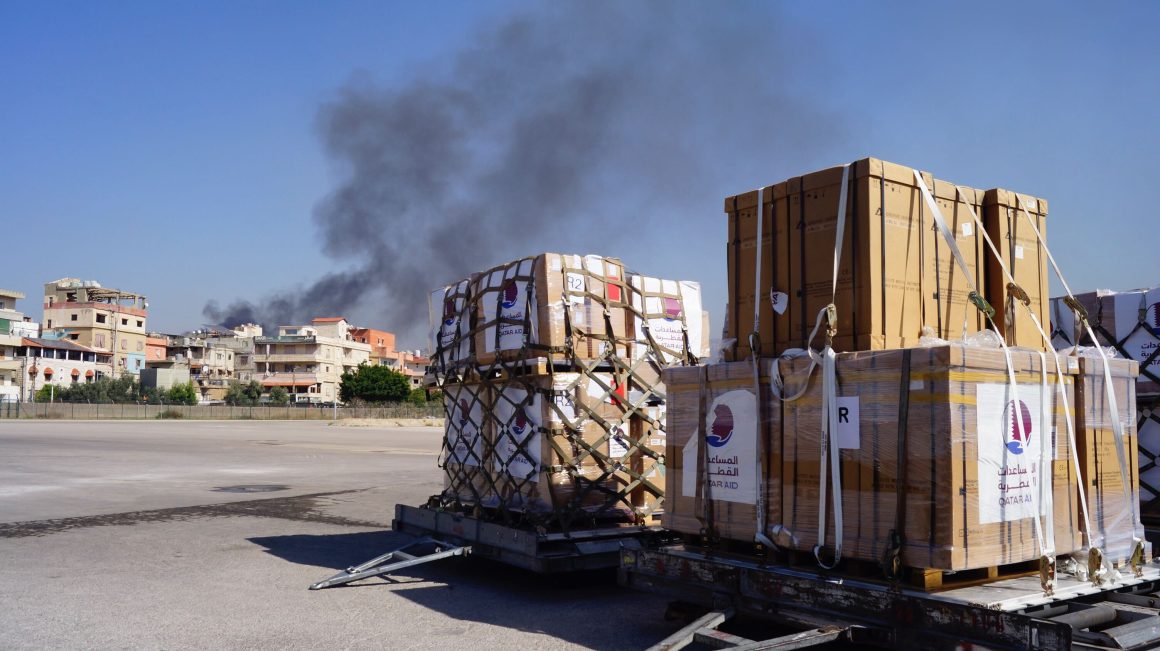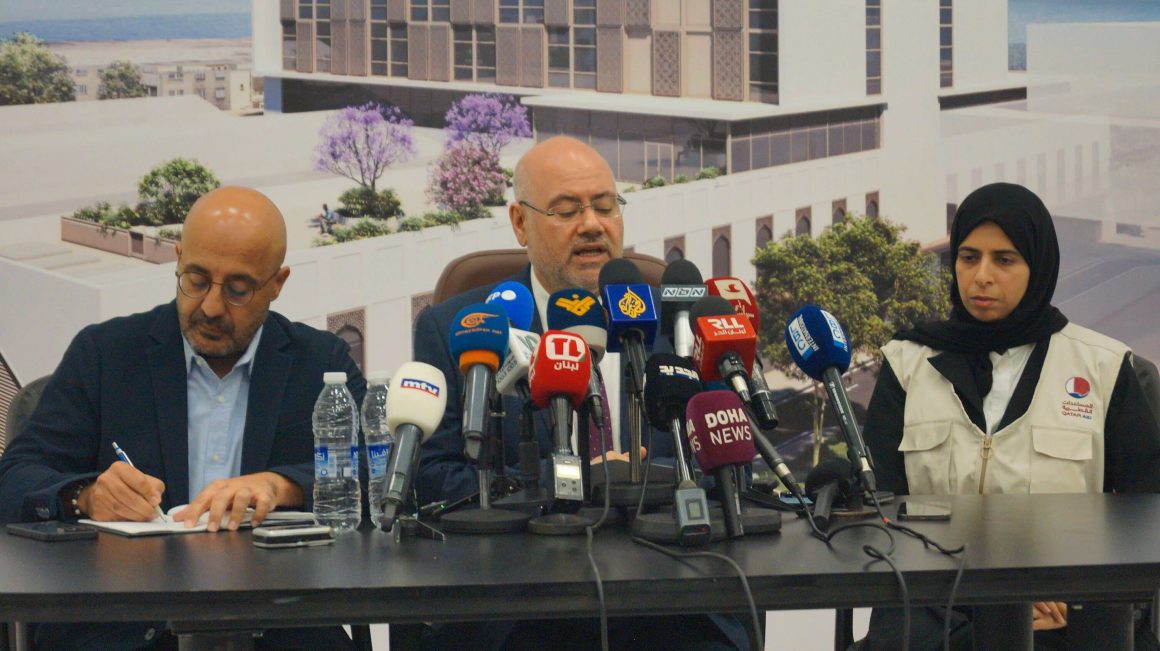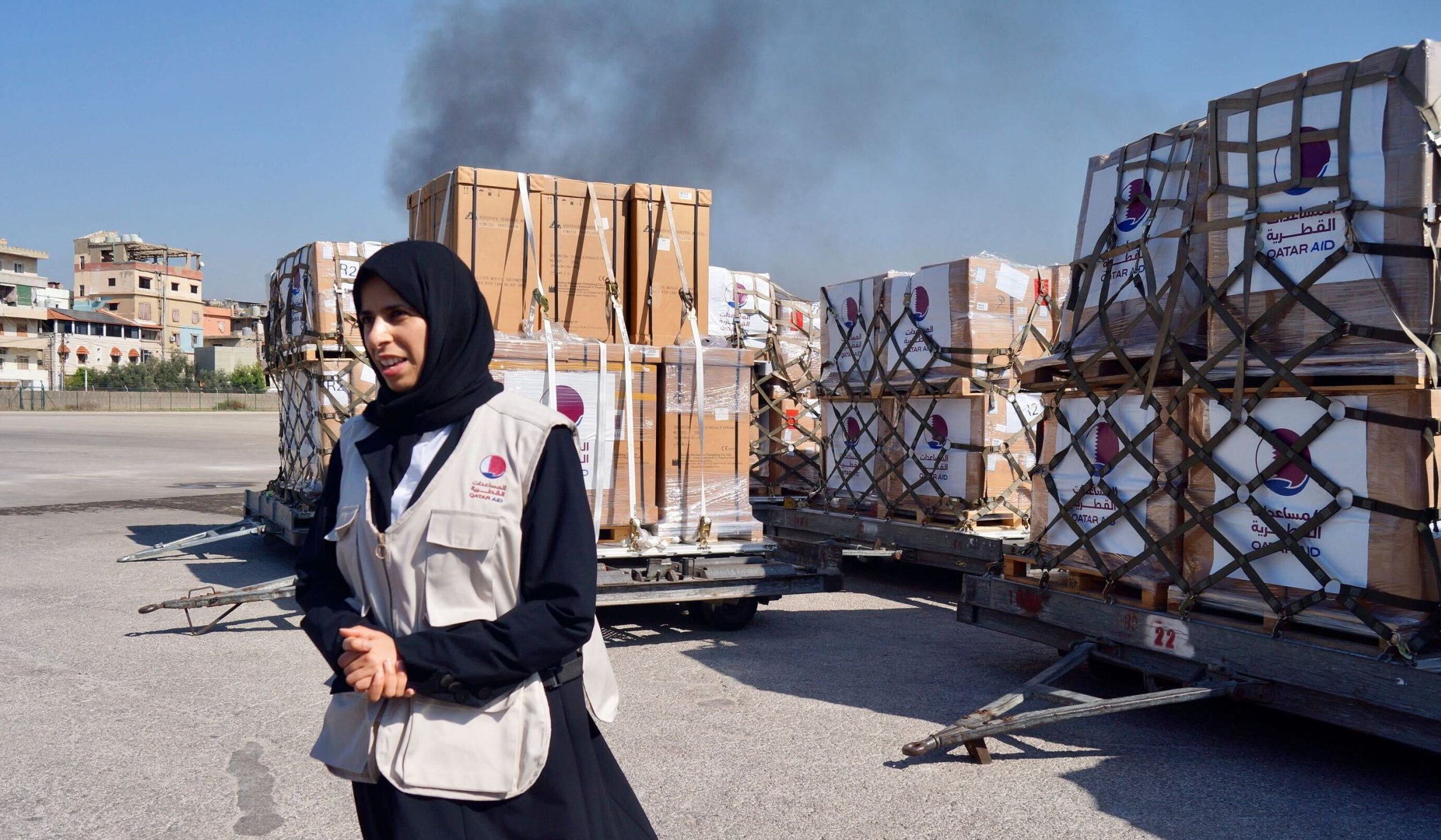Doha News joined Qatar’s Minister of State for International Cooperation Lolwah Al Khater on a trip to Lebanon on Tuesday, where the Gulf state delivered tonnes of aid.
Qatar has sent its first aid aircraft to Lebanon on Tuesday as it launched its air bridge to the crisis-hit country, following directives by the Amir Sheikh Tamim bin Hamad Al Thani amid the ongoing Israeli aggression.
Accompanied by a delegation, Qatar’s Minister of State for International Cooperation Lolwah Al Khater travelled to Lebanon to oversee the launch of the first Qatari Armed Forces aid aircraft, which was carrying assistance provided by the Qatar Fund for Development.
Al Khater confirmed that the Gulf state plans to send 10 aid aircrafts to Beirut throughout October.
On the same day, Qatar and France collaborated to dispatch joint humanitarian aid to Lebanon. All aircrafts carried medical supplies, medication and shelter equipment to assist more than a million people displaced by the relentless Israeli attacks.

Speaking to Doha News on the Qatar Emiri Air Force plane before departing the Al Udeid Air Base, French ambassador to Qatar, Jean-Baptiste Faivre, stressed the importance of the joint collaboration.
“I am honoured to be here today in Doha with Her Excellency the Minister of State for International Cooperation Lolwah Al Khater as she is about to travel to Lebanon,” he said.
Upon landing in Beirut’s Rafic Hariri International Airport, Al Khater met Lebanon’s Caretaker Prime Minister Najib Mikati at the Grand Serail (Government Palace). Both officials discussed cooperation and de-escalation efforts in light of the latest developments in Lebanon.
Qatar’s Ambassador to Lebanon, Sheikh Saoud bin Abdul Rahman Al Thani, was also in attendance.
In a short press briefing, Al Khater reaffirmed Qatar’s support for Lebanon’s sovereignty and security while highlighting the international community’s lack of action towards Israel’s attacks on the region.
“We strongly condemn all attacks on Lebanese civilians. In fact, the Israeli occupation forces would not have gone so far and expanded the conflict outside Gaza if the international community had taken a serious stance against what was happening in Gaza,” she said, reiterating calls to stop providing Israel with arms.
Israel has intensified its military operations in Lebanon since last month, which saw the assassination of Hezbollah leader Hassan Nasrallah on September 27. The attacks came after months of cross-border attacks between Hezbollah and Israel, triggered by the war on the Gaza Strip.
Occupation forces have been bombing different parts of Lebanon, including the capital Beirut under the pretext of eliminating Hezbollah, echoing its claims to get rid of Hamas in order to justify the war on the Gaza Strip.
As of Tuesday, Israel has killed 2,119 people in Lebanon since October 8, according to the local health ministry.
The country is already grappling with a worsening economic crisis that was exacerbated by the outbreak of Covid-19 and the Beirut Port explosion in 2020, which it has yet to recover from.
A critical time for Lebanon
Before departing Lebanon, Al Khater stopped at the Beirut Governmental University Hospital – Karantina, which Qatar had pledged to reconstruct in 2021 following the devastating Beirut Port Blast.
The Qatari official visited wounded people at the hospital and was accompanied by Lebanon’s Minister of Public Health, Firass Abiad, as well as Nasser Yassin, the Minister of Environment and Head of the Emergency Committee in the Lebanese Caretaker Government.
The officials also held a press conference at the hospital where they briefed journalists on the Qatari efforts and the latest situation in Lebanon. Al Khater said that Qatar was working “on medium and long-term plans to contain” Lebanon’s humanitarian crisis.

“The brutal aggression targeted Lebanon, its civilians, infrastructure, and even hospitals. As I learned from the Minister of Health, 13 hospitals were targeted, and 125 medical personnel were martyred,” Al Khater said.
She also called out the international double standards towards Israel’s violations in the region.
“If this had happened anywhere else in the world, we would have found the international community rising up to stop such a massacre, but unfortunately we see this inaction, as we saw it in Gaza before,” she noted.
During the same press conference, Abiad said the Qatari aid will help the local health sector to provide adequate services to both displaced people and those wounded by the Israeli attacks.
The Lebanese minister of environment echoed Abiad, saying that Qatar’s support comes at a critical time for his country.
“The Qatari initiative is very important and comes at this difficult time that we are going through as a result of the aggression and to secure urgent humanitarian, medical and relief needs. This is not surprising for the State of Qatar and its people to stand by Lebanon in all crises,” Yassin said.
According to Yassin, Lebanon currently has 1.2 million displaced people across more than a thousand shelters due to the Israeli attacks.
Speaking to Doha News at the hospital, Yassin said Lebanon is “very grateful” for Qatar’s unwavering support.
“We are very grateful for the Qatari government[…]this is one of the toughest and gravest times that Lebanon is going through,” he said.







